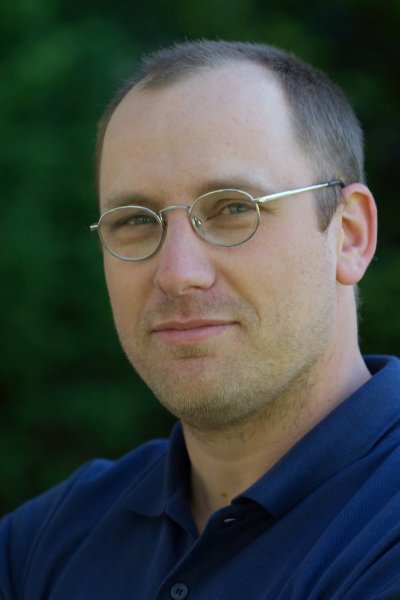invited speaker
line
Markus Völter: "The state of the art in (external) DSLs"
Markus Völter works as an independent researcher, consultant and coach for itemis AG in Stuttgart, Germany. His focus is on software architecture, model-driven software development and domain specific languages as well as on product line engineering. Markus also regularly writes (articles, patterns, books) and speaks (trainings, conferences) on those subjects.

The current state of the art in external, mostly textual DSLs are detailed in this keynote. Some conceptual aspects (mainly language modularization), the practical tool reality (Xtext, MPS, Spoofax, ...) as well as some industry experience regarding the adoption of DSLs will be covered.
Markus Völter works as an independent researcher, consultant and coach for itemis AG in Stuttgart, Germany. His focus is on software architecture, model-driven software development and domain specific languages as well as on product line engineering. Markus also regularly writes (articles, patterns, books) and speaks (trainings, conferences) on those subjects.

The current state of the art in external, mostly textual DSLs are detailed in this keynote. Some conceptual aspects (mainly language modularization), the practical tool reality (Xtext, MPS, Spoofax, ...) as well as some industry experience regarding the adoption of DSLs will be covered.
workshop program
line
9.00 - 10.30: Section 1. Functional programming
Viktória Zsók, Pieter Koopman, and Rinus Plasmeijer: Generic Executable Semantics for D-Clean
Viliam Slodičák, and Pavol Macko: New approach in functional programming using algebras and coalgebras
10.30 - 11.00: Coffee break
11.00 - 12.30 Section 2. Multicore programming
Zalán Szűgyi and Norbert Pataki: A More Efficient and Type-Safe Version of FastFlow
Zalán Szűgyi, Márk Török and Norbert Pataki: Towards a Multicore C++ Standard Template Library
12.30 - 14.30: Lunch break
14.30 - 16.00: Keynote talk: Markus Völter: The state of the art in (external) DSLs
16.00 - 16.30: Coffee break
16.30 - 18.00: Section 3. Templates
Nuno Amálio Christian Glodt, Frederico Pinto, and Pierre Kelsen: Automated Generation of Platform-Variant Applications from Platform-Independent Models via Templates
Ábel Sinkovics: Nested Lambda Expressions with Let Expressions in C++ Template Metaprograms
Viktória Zsók, Pieter Koopman, and Rinus Plasmeijer: Generic Executable Semantics for D-Clean
Viliam Slodičák, and Pavol Macko: New approach in functional programming using algebras and coalgebras
10.30 - 11.00: Coffee break
11.00 - 12.30 Section 2. Multicore programming
Zalán Szűgyi and Norbert Pataki: A More Efficient and Type-Safe Version of FastFlow
Zalán Szűgyi, Márk Török and Norbert Pataki: Towards a Multicore C++ Standard Template Library
12.30 - 14.30: Lunch break
14.30 - 16.00: Keynote talk: Markus Völter: The state of the art in (external) DSLs
16.00 - 16.30: Coffee break
16.30 - 18.00: Section 3. Templates
Nuno Amálio Christian Glodt, Frederico Pinto, and Pierre Kelsen: Automated Generation of Platform-Variant Applications from Platform-Independent Models via Templates
Ábel Sinkovics: Nested Lambda Expressions with Let Expressions in C++ Template Metaprograms
workshop date and place
line
March 27, 2011.
Saarbrücken, Germany
call for papers
line
Generative programming is an emerging paradigm aimed
at automating important tasks in software development,
compile-time and run-time code transformation, and the
creation of domain-specific languages and flexible libraries.
The purpose of the workshop is to provide a forum for
researchers and practitioners working in this area to discuss
state-of-the-art generative technologies and tools, and
exchange ideas about the future of generative programming.
Papers describing practical applications of generative styles,
and new research directions are expected. Suggested areas of
interest in the workshop include, but are not limited to:
- Generative programming, metaprogramming
- Separation of concerns
- Intentional programming
- Domain engineering and domain analysis
- Product-line architectures
- Feature-based techniques
- Compile-time and run-time code transformation
- Multi-stage languages
- Generic and Active library-development
- Analysis of language support for generative programming
- Semantics, type-systems of generative programs
- Case Studies and Demonstration Cases
submissions
line
RESEARCH PAPERS (full papers, 8-14 pages) should be submitted
to the WGT 2011 organizers in LNCS format.
Submissions should be sent by e-mail.
Accepted workshop papers are published in the local proceedings. After the workshop the participants are invited for submission to journal ENTCS.
Further information will be available at the WGT 2011 home page. At least one author of each accepted submission must register and present the paper at the workshop.
The official e-mail address of the workshop is wgt at aszt.inf.elte.hu
Accepted workshop papers are published in the local proceedings. After the workshop the participants are invited for submission to journal ENTCS.
Further information will be available at the WGT 2011 home page. At least one author of each accepted submission must register and present the paper at the workshop.
The official e-mail address of the workshop is wgt at aszt.inf.elte.hu
important dates
line
- Submission of full paper:
November 22, 2010December 6, 2010December 13, 2010 - Author notification:
January 3, 2011January 17, 2011 - Final version due:
January 17, 2011January 31, 2011
program committee
line
- Jaakko Järvi - Texas A&M University (USA)
- Julia Lawall - University of Copenhagen (DEN)
- Hanspeter Mössenböck - Johannes Kepler University Linz (AT)
- Zoltán Porkoláb - Eötvös Loránd University (HUN)
- Awais Rashid - Lancaster University (UK)
- João Saraiva - University of Minho (POR)
- Bran Selic - Carleton University (CAN)
workshop organizers
line
- Norbert Pataki, Eötvös Univ., Budapest
patakino at elte.hu - Zoltán Porkoláb, Eötvös Univ., Budapest
gsd at elte.hu - Melinda Simon, Eötvös Univ., Budapest
melinda at elte.hu - Workshop on Generative Technologies
wgt at aszt.inf.elte.hu
the host city
line
Saarbrücken is the capital of the Saarland, the smallest German
federal state. Saarbrücken has approximately 190,000 inhabitants
and hence is of pleasant size. Picturesque attractions and places
of historic interest are scattered around the city, and offer the
perfect destination for a hike or a daytrip. The cultural palette
attracts visitors from far and wide. Saarbrücken is located very
close to the French border, and half way on the high-speed railway
connecting Paris and Frankfurt. Both are in less than two hours
distance.
Links
line

